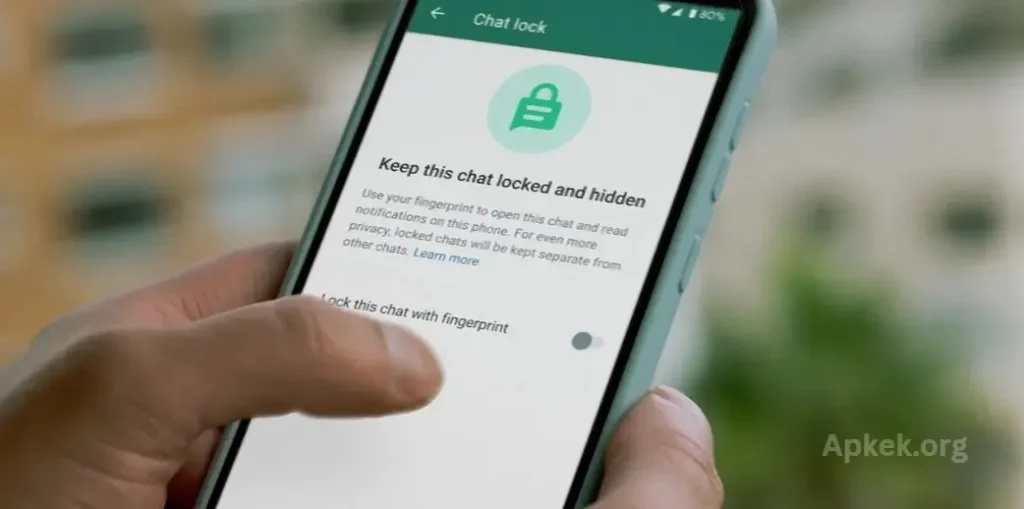Texting on social media has become more common than face-to-face conversations or even phone calls. As a result, we spend more time messaging others—often without knowing how secure those interactions really are. The information we share can be exposed or viewed by unintended parties, making it crucial to protect our conversations. This article is designed to guide you through the essentials of secure communication, helping you understand the risks and take steps to safeguard your privacy.
What is the security of SMS conversations?
Not long ago, we met people face-to-face, followed up with a phone call, or exchanged letters. Today, whether we’re traveling or sitting in one place, most of our conversations happen through text messages. This shift has created a new kind of experience—texting has replaced in-person conversations, and we often share images, emotions, and ideas that feel just as real.
In the process, we exchange important personal information, making it essential to ensure that messages reach only the intended recipient. Securing that information is critical, especially when we don’t know who might be watching in between. Even when someone else sends you a message, it’s worth questioning if the content stayed private from sender to receiver. That’s why using strong security features in messaging platforms isn’t optional-it’s necessary.
The Shift to Digital Communication
Gone are the days when we relied on handwritten letters or in-person meetings to connect. Now, we message from anywhere—on the go, at home, in cafes, or while traveling. We send not only words but also photos, videos, locations, and sensitive details. That flow of personal information makes messaging platforms a prime target for privacy breaches.
Why Messaging Privacy Matters
Every message you send contains more than just text. It might include private thoughts, financial data, professional insights, or even intimate images. If any of this ends up in the wrong hands, the consequences can be serious—from identity theft to reputational damage.
Even when you’re chatting with someone you trust, there’s no guarantee the message isn’t being intercepted or stored by third parties along the way. That’s why ensuring privacy isn’t just a feature—it’s a necessity.
You may also like it:
WhatsApp Call Recorder – Capture Conversations Seamlessly
Offline Chat for WhatsApp, No Last Seen, Blue Tick!
Premier Deleted Messages Recovery App
Steps to Strengthen Your Messaging Privacy
Here’s how you can take control of your digital conversations and keep your messages secure:
1. Use End-to-End Encrypted Apps
Choose messaging platforms that offer end-to-end encryption (E2EE), like Signal, WhatsApp, or iMessage. With E2EE, only you and the recipient can read the messages—not even the service provider can access them.
2. Verify Contacts
Many secure messaging apps let you verify the identity of your contacts. This prevents impersonation and ensures you’re talking to the right person.
3. Enable Two-Factor Authentication (2FA)
Protect your messaging accounts by turning on 2FA, which adds an extra layer of security beyond just a password. It keeps your account safe even if someone tries to log in from another device.
4. Limit App Permissions
Don’t give messaging apps more access than necessary. For example, avoid sharing your location or contacts list unless it’s essential. Check your device’s permission settings regularly.
5. Be Cautious with Shared Media
Photos and files can reveal more than you intend. Avoid sharing sensitive documents over insecure channels, and always double-check who you’re sending them to.
6. Avoid Public Wi-Fi for Sensitive Conversations
Public networks are vulnerable to interception. If you must message while connected to public Wi-Fi, use a VPN to encrypt your internet traffic.
Trust is Good. Privacy is Better.
Messaging apps have made our lives easier, but convenience should never come at the cost of privacy. By taking a few simple steps, you can ensure that your personal and professional conversations stay safe and secure.
Don’t wait for a data breach or privacy scare to act. Make messaging privacy a habit—because your words deserve protection.
Frequently Asked Questions
What is messaging privacy, and why is it important?
Messaging privacy means protecting the content of your personal or professional conversations from being accessed by anyone other than the intended recipient. It’s important because messages often include sensitive data—photos, passwords, financial details, or private thoughts—that could be misused if intercepted or leaked.
What is end-to-end encryption (E2EE)?
End-to-end encryption ensures that only the sender and recipient of a message can read its contents. Even the messaging service provider cannot access the messages. Apps like Signal, WhatsApp, and iMessage use E2EE to provide strong privacy.
Can my messages still be hacked even with encryption?
While encryption offers strong protection, nothing is 100% foolproof. Messages can be exposed through device theft, malware, weak passwords, or phishing. That’s why it’s important to combine encryption with good security habits.
Are images and videos shared in chats also encrypted?
Yes, in most secure messaging apps, media files sent in encrypted chats are protected along with your text. However, be cautious—once saved on a device, media can be accessed if the device itself is compromised.
What’s the risk of using public Wi-Fi for messaging?
Public Wi-Fi can be exploited by hackers to intercept your internet traffic. Even with encrypted messaging, using unsecured networks can expose you to risks. To stay safe, use a VPN when accessing messaging apps on public Wi-Fi.
Do secure messaging apps store my messages?
Most secure apps using E2EE do not store your messages on their servers. Messages are stored locally on your device and deleted once delivered, depending on the app’s settings. Always check the app’s privacy policy.
How can I make sure I’m messaging the right person?
Use contact verification features when available. Many apps allow you to confirm encryption keys or scan QR codes to ensure the person you’re chatting with is genuine and not an imposter.
Conclusion
In a world where most conversations happen through screens, protecting your privacy isn’t just smart—it’s essential. Every message you send carries a piece of your personal life, and without the right protections, that information can be exposed, misused, or even stolen.
The good news? You don’t need to be a tech expert to keep your messages safe. By using end-to-end encrypted apps, enabling two-factor authentication, verifying contacts, and staying cautious with what and where you share, you take control of your digital communication.

